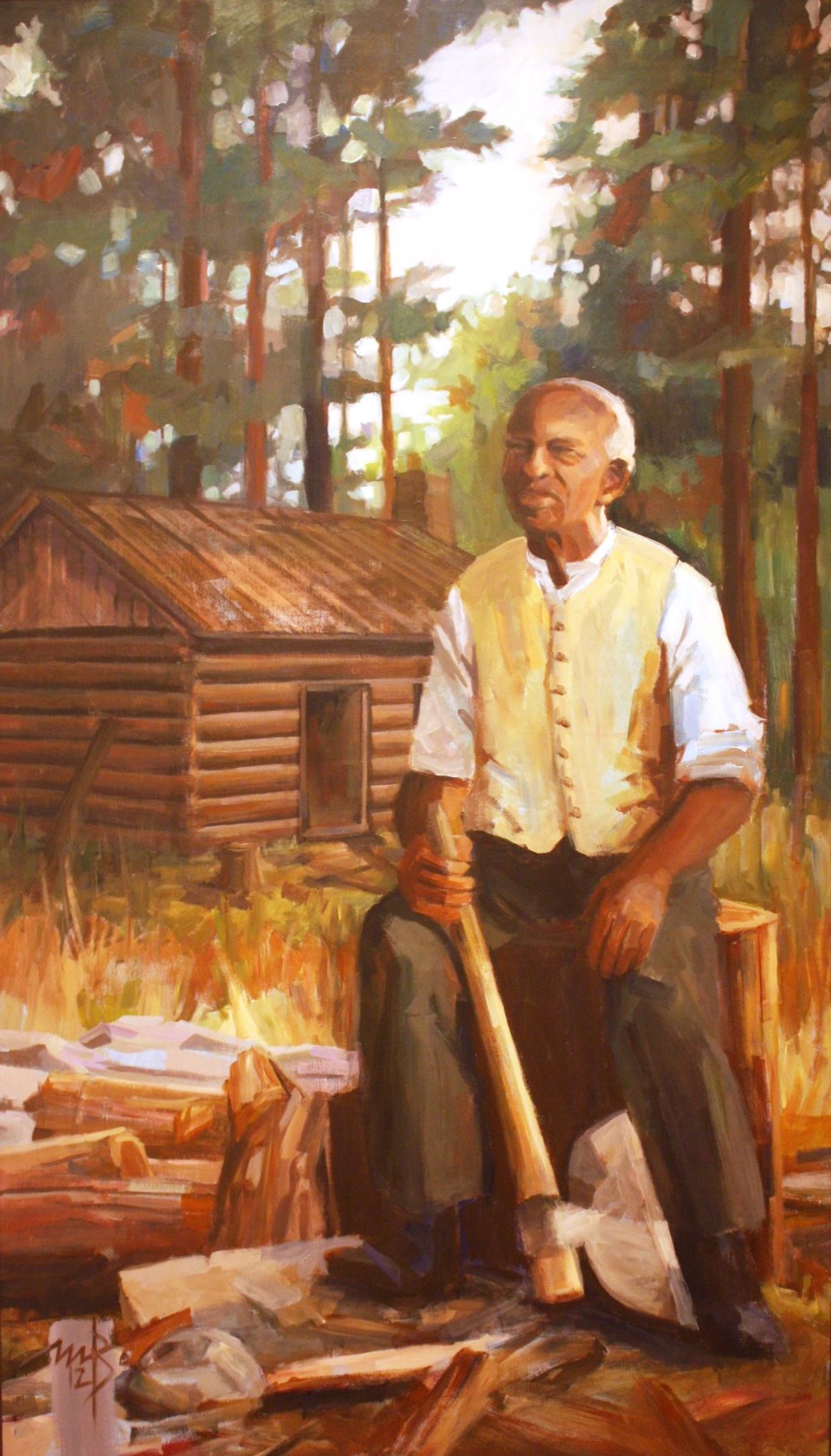Fergus might be best-known as an historic Scottish town, but it’s got a long history of Black settlement that runs deep.
One settler in particular, Richard Pierpoint, is known as an early leader in Canada’s Black history.
According to the Wellington County Museum and Archives, historical documents reveal Pierpoint took every opportunity, in slavery, war and peace, to gain his freedom and independence and to lead other Black men as soldiers and settlers.
Pierpoint was born in 1744 in the landlocked West African kingdom of Bondu, now Senegal. Captured at the age of 16 by slave traders, he was forcibly transported to New England in 1760 and purchased by a British officer named Pierpoint. He was enslaved for 20 years. His African name was left behind and he was given the first name Richard.
To increase their numbers in the American Revolutionary War (1776-1783), according to the Wellington County Museum and Archives, British authorities offered freedom to those enslaved in America who enlisted with Loyalist troops.
In 1780, Pierpoint joined the battalion known as Butler’s Rangers which engaged in guerrilla warfare against American forces. During the war, Pierpoint was likely stationed at Fort Niagara.
In 1784, Pierpoint was still in the Niagara region. Having been honourably discharged, he was named on a list of settlers in the area, among other disbanded Rangers. In 1791, he was granted 200 acres in Grantham Township, now St. Catharines.
On June 29,1794, Pierpoint signed “The Petition of Free Negroes” with other Black residents of Upper Canada. Some historians believe Pierpoint may have written the petition himself.
The petition reflects the reality many early Black residents in Canada faced. Because they encountered difficulties in clearing and settling their land alone, the petitioners, many of whom were former soldiers, asked to settle adjacent to each other so they could establish a community and work together to build a strong settlement.
The petition was rejected by the majority white settlers who did not wish to create a separate Black community. Pierpoint did successfully clear his land, receiving his patents in 1804, but sold his property two years later, in November 1806.
When war broke out between Britain and the United States in 1812, Richard Pierpoint was 68- years-old. Nevertheless, he petitioned military leadership to create an all-Black militia to fight for the British. Shortly thereafter, Pierpoint joined Capt. Robert Runchey’s Corps of Coloured Men, the Coloured Corps, a militia of free Black men.
Serving as a private from 1812 to 1815, Pierpoint served with the Coloured Corps in multiple battles in the War of 1812. He fought at the Battle of Queenston Heights, where the Coloured Corps was among the first reinforcements to arrive in support of John Norton’s Six Nations warriors. After engaging at the Battle of Fort George in May 1813, the Coloured Corps supported British troops in the Battle of Stoney Creek.
On January 19, 1820, in recognition of his contribution during the War of 1812, Pierpoint was granted 100 acres of land on the Grand River in Garafraxa Township, near present-day Fergus, where he lived out the rest of his life.
On July 21, 1821, he petitioned the government for passage back to West Africa. In his petition, Pierpoint pleads that he is “above all things desirous to return to his native country.” The colonial government did not grant Pierpoint’s wish, and he accepted his land grant in Garafraxa.
Pierpoint fulfilled the settlement requirements for his grant in 1825, most likely with the help of a younger man named “Deaf Moses.” Pierpoint’s land in Garafraxa has been described as a settlement for Black Canadians, for those fleeing enslavement in the United States, or for people simply in search of the same communal living arrangement Pierpoint had asked for in the 1794 “Petition of Free Negroes.”
Pierpoint was among the first few to settle “the wilds of Garafraxa in the 1820s.”
Pierpoint died in September 1838 at the age of 94. He left no family or successors. He left his estate to Lemuel Brown of Grantham Township.
Local historians believe Pierpoint was buried on his land, near the present site of John Black School, on the outskirts of Fergus.
Pierpoint was known as a gifted storyteller. Today, his legacy stands as a testimony to the lives of slaves, soldiers, and settlers, and the fight for freedom.



